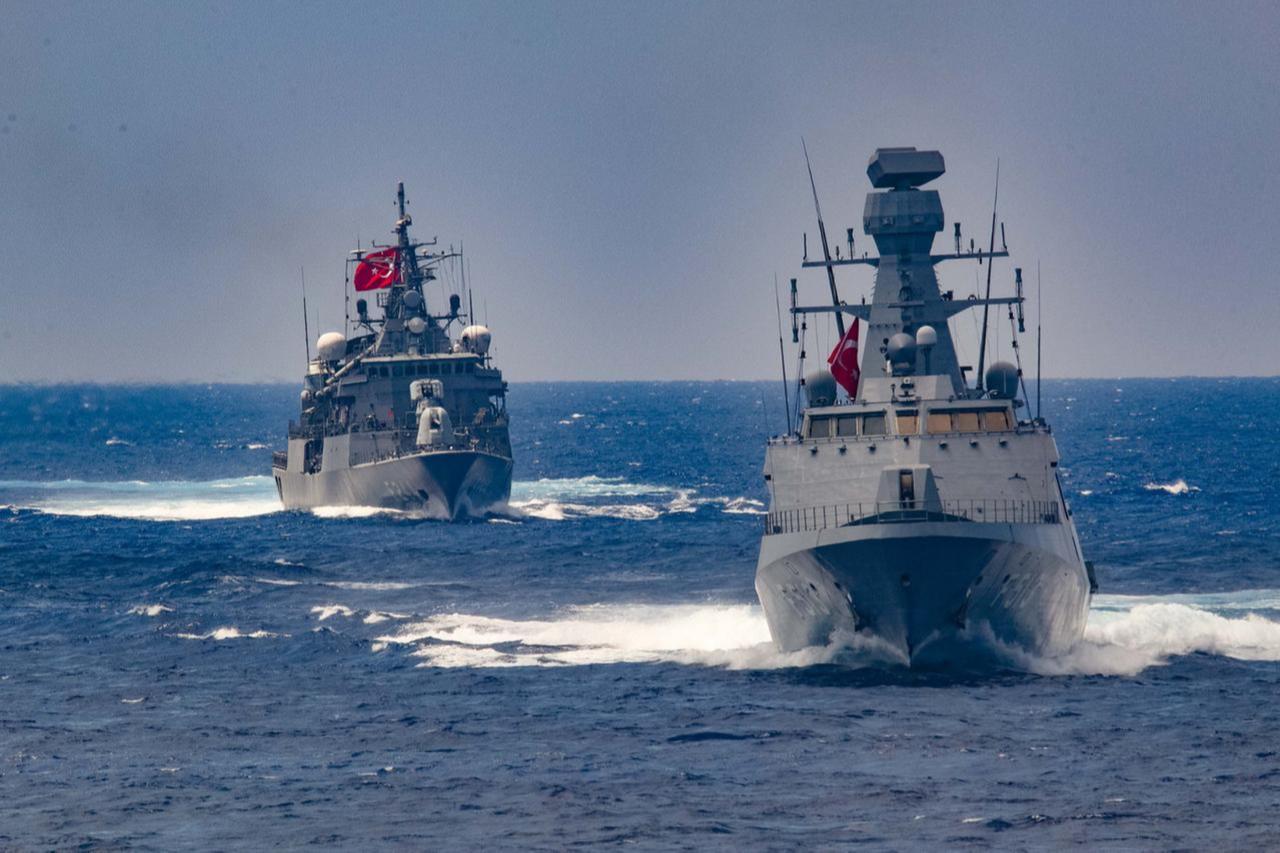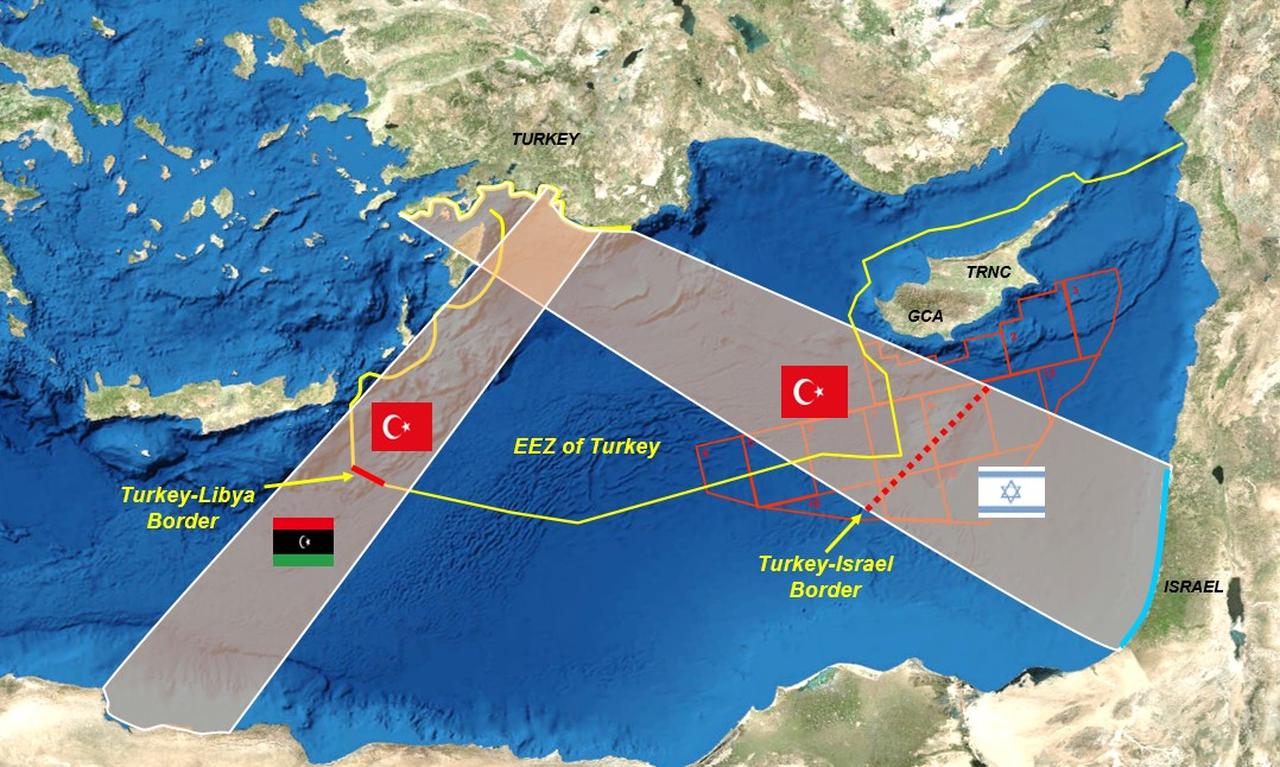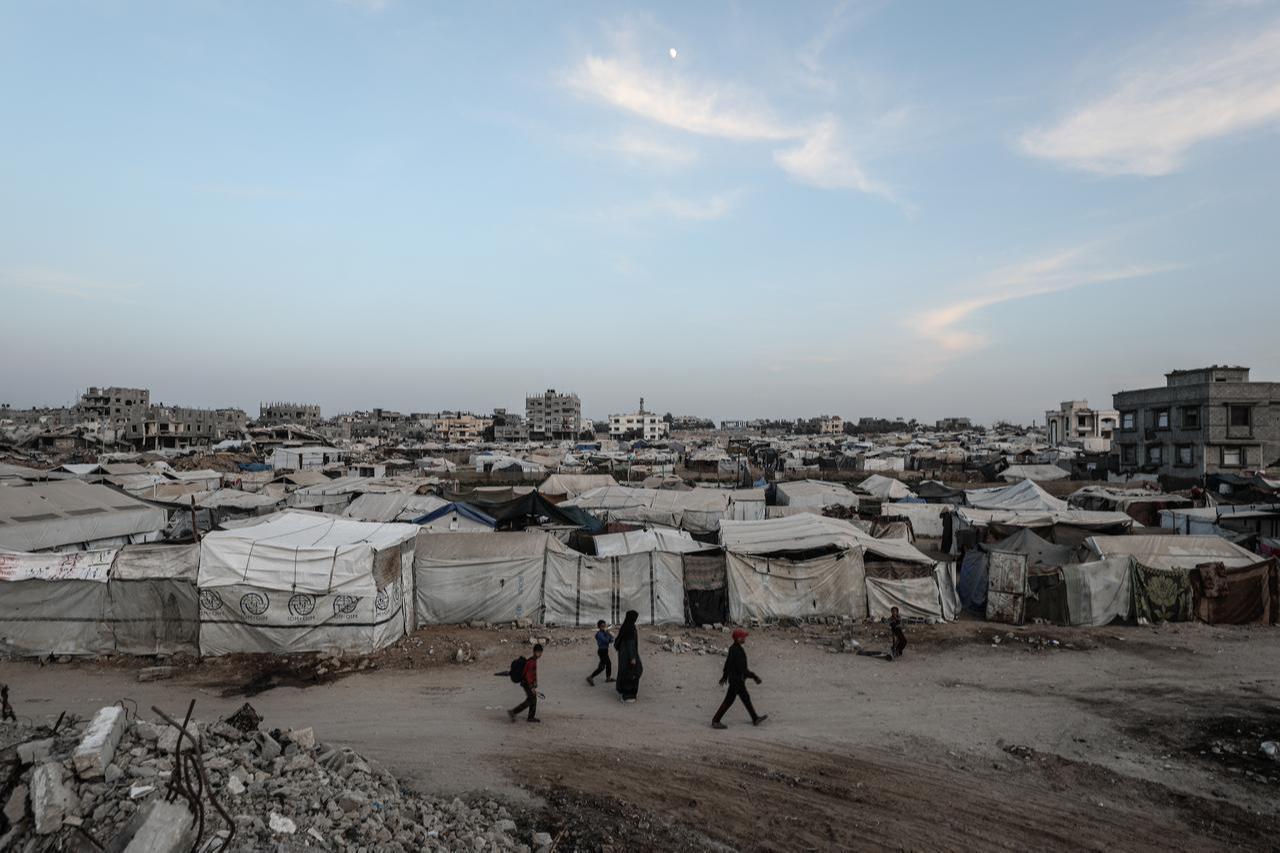
The war in Gaza is primarily a story of human catastrophe. Yet there is another consequence that is almost invisible in today’s global coverage is that the war also derailed a delicate, slowly emerging diplomatic track to reshape the Eastern Mediterranean between the biggest military powers in the region.
Before Oct. 7, Ankara and Tel Aviv were working on a serious effort to normalize ties after a decade of turbulence.
On Sept. 19, 2023, President Recep Tayyip Erdogan received Israeli Prime Minister Benjamin Netanyahu at the Turkish House (Turkevi) during a U.S. visit for the 78th session of the United Nations General Assembly, New York, U.S. The two shook hands in New York.
There were many motivations, but from the Turkish side, one of the core strategic drivers was the Eastern Mediterranean maritime order. Ankara wanted to break the isolation it was pushed into by Greece, Cyprus, and increasingly the UAE and Egypt.
Ankara saw potential in limited maritime cooperation with Israel to change that equation–not as a symbolic gesture, but as an actual map-changing negotiation. In the new situation that has arisen, the transformation has changed irreversibly.

The Turkish “Blue Homeland” doctrine includes the argument that Türkiye and Israel have a small but meaningful maritime boundary. If the two could agree on EEZ delimitations, even limited adjustments could have unlocked a new corridor for energy, transit, and naval de-escalation.
What made Ankara confident was that it could offer Israel a larger EEZ than what the Greek Cypriots could ever put on the table.
Israel may have a strategic bond with Southern Cyprus, but this was a negotiable space.
From a purely realist view, swapping maritime zones for weak political allies would have been inconsistent with Israel’s own abandonment of its historical logic of “land for peace” bargaining–except in this case, maritime jurisdiction could function as the currency instead of physical territory.
Considering that Israel and Cyprus resorted to international arbitration to resolve a dispute over the distribution of natural gas from a shared offshore reservoir in 2018, it is also important to understand that business might come before political friendship in this regard.
Türkiye, recently, spent the last few years rebuilding ties with Egypt after a decade of sharp rupture.
Back then, the idea was to attempt a similar rapprochement with Israel. The logic was not ideological but structural, just as the recent one with Egypt: major Middle Eastern states with deep trade and security portfolios could reconfigure the Eastern Mediterranean system if they were aligned on maritime rights.

Contrary to how it is sometimes described outside the region, the Turkish-Israeli normalization track did not die because of the Hamas attacks. In contrast, Ankara publicly condemned ‘the loss of civilian lives’.
The diplomatic window could have survived if Israel had chosen a calibrated military response.
A narrower, more proportionate Israeli campaign would not have forced Ankara to politically burn the normalization project at its core.
The shock was not the operation itself. The rupture came from the scale and the nature of the Gaza war. The enormity of civilian casualties, and the open official statements of pure cruelty, forced every state in the region–especially those with public sensitivities–to freeze or reverse normalization dynamics.

Perhaps the clearest sign is the shift in the discourse of key Turkish strategic voices. Even Cihat Yayci, the popular retired admiral associated with the “Blue Homeland” doctrine and previously a strong supporter of a maritime deal with Israel, now argues that Israel has become a regional threat due to its aggressive behavior.
This reversal underscores how profoundly the Gaza war has reshaped the political geography.
Before Oct. 7, the region was entering a phase where maps, EEZ proposals, and bilateral working groups were close to becoming a reality. Today, that space is again suspended. The Eastern Mediterranean has returned to a logic of confrontation rather than integration.
Today, the future of Türkiye–Israel relations goes far beyond Gaza itself. Domestic political pressure in Türkiye, for example, makes any tolerance toward Israel impossible.
More importantly, the depth of the competition over Syria cannot be compartmentalized anymore between the two sides.
Israel’s routine strikes against regional actors such as Qatar, Iran, and Lebanon have reached a point where they cannot be contained, and this dynamic now defines the strategic horizon.
Had the war not reached this scale, the Eastern Mediterranean might today be in a phase of exploratory maps, technical boundary drafts, and bilateral working groups.